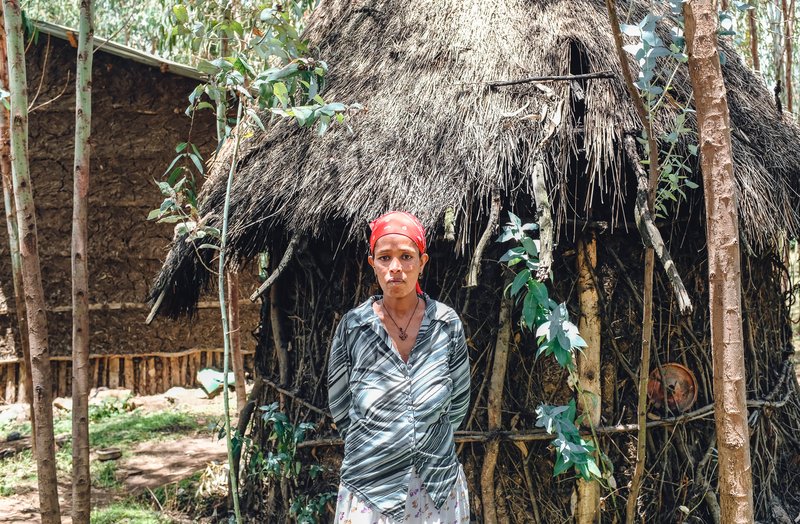
Banchayehu Kassie is a health extension practitioner in a Lay Gayint, one of the woredas in the Amhara region of Ethiopia; a country which has one of the largest burdens of neglected tropical diseases (NTDs) in Africa. There are roughly 110 million people in Ethiopia and, in 2018, more than 77 million of them required treatment for at least one NTD.
With a high burden of NTDs and many communities living in remote areas, health extension practitioners are a key aspect of health services.
Banchayehu trained for years to become a health extension practitioner. After completing one year of technical and vocational training, she worked for six years as a health extension worker and then studied for a diploma. Banchayehu now works in Lay Gayint, where NTDs such as trachoma and elephantiasis often thrive.
A full-time job
“There are 1,500 households in this community and each household has, on average, five people.” Banchayehu says. “It is me and three other practitioners who are responsible for this area.”
“It is a difficult, full-time, job. Even if you take one package – hygiene and sanitation for example – that requires latrine construction, which takes a lot of effort. And then you need to make sure that the community is practicing healthy behaviours – which means people keeping their hands and faces clean – as well as making sure that clean water infrastructure is maintained.”
These health-seeking behaviours are crucial in preventing the spread of certain NTDs, such as trachoma, which is spread through contact with contaminated eyes and thrives in areas without access to clean water or effective sanitation.
Preventing and treating neglected tropical diseases
“We have been conducting mass drug administration in this area for 11 years but, compared to previous communities I have worked in, this area has a higher burden of trachoma.”
“We identified 38 people with trachoma in the community last year.”
Trachoma causes a person’s eyelashes to turn inward and scratch the surface of the eye. It is an agonising condition which can lead to blindness. Treatments include surgery and antibiotics, but the disease can also be prevented by keeping the hands and faces clean. As of 2018, over 177 million people live in areas that are endemic for trachoma.
“There are also 20 people in the community who live with elephantiasis.” Banchayehu says.
There are two main causes of elephantiasis in Ethiopia: lymphatic filariasis, which is transmitted by mosquitoes. and podoconiosis, an inflammatory reaction to mineral particles in highland red clay soil. In Banchayehu’s community, which is a highland area, podoconiosis predominates. Podoconiosis is found in 345 of Ethiopia’s 800+ districts, and causes severe and extensive swelling of the lower limbs with severe accompanying social, psychological and economic consequences.
Health extension practitioners like Banchayehu are trained to diagnose diseases like trachoma and elephantiasis, and act as a first point of contact for drug distributors. Because there are health workers like Banchayehu in this community, people with these NTDs are able to receive treatment. “All of the people we identified with trachoma received the surgery they needed” Banchayehu says.
Health extension practitioners also promote health-seeking behaviours. “Prevention and control mean educating the community so that people understand how diseases are transmitted. We also have an extension package which focuses on maternal and child health.”
Health workers improve health systems
By training health workers in remote communities like this, NTD programmes have a significant effect on improving local health systems. Primary health workers are described as “the cornerstone of a sustainable health system” by the London Declaration on NTDs.
It is, Banchayehu says, an extremely difficult but rewarding job.
“Our biggest challenge is poverty. I go house to house for health education purposes, but it’s very difficult because people are often away looking for work or farming. It makes house to house visits meaningless, because we don’t find people.”
“Drug shortages can also make my work very challenging.”
But Banchayehu has seen improvements over her twelve years of providing primary health care. “I have seen a lot of change, but it requires intensive work from health workers. I hope that communities will continue to take on health behaviours.”